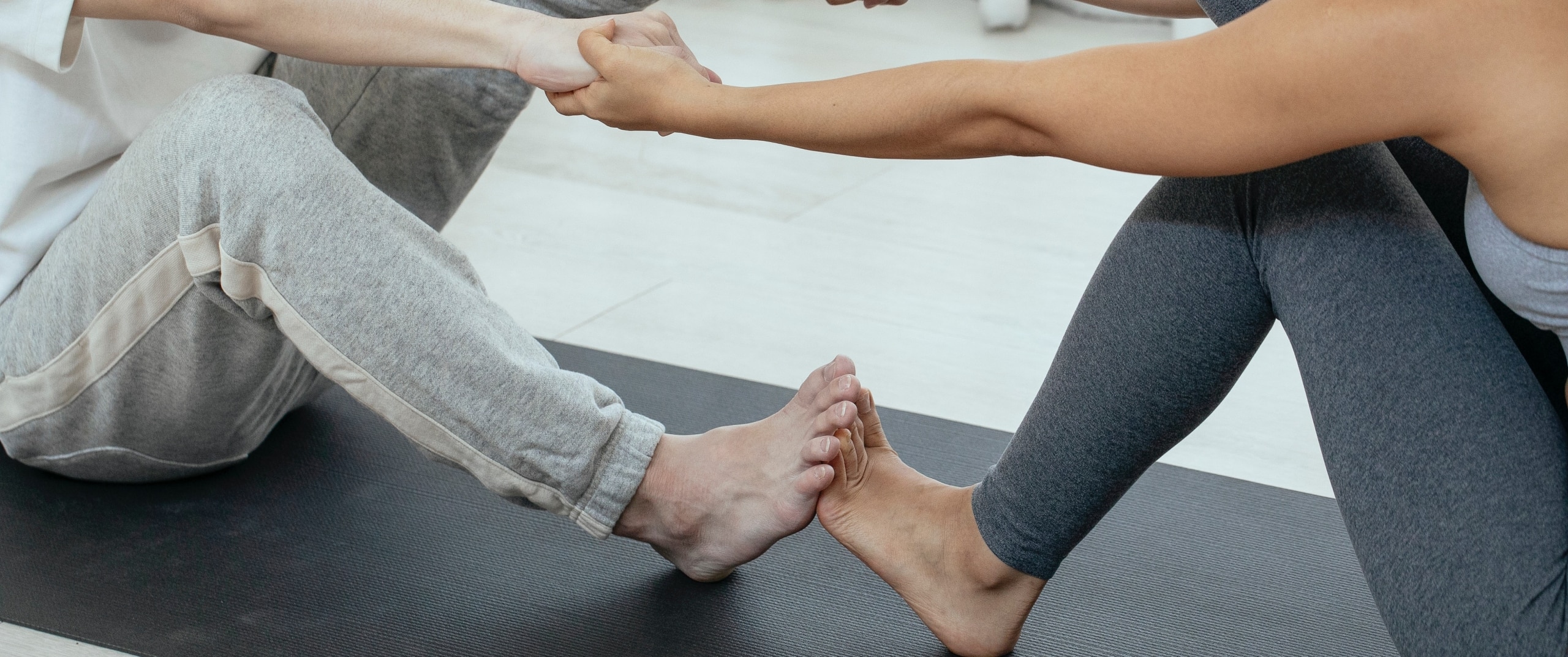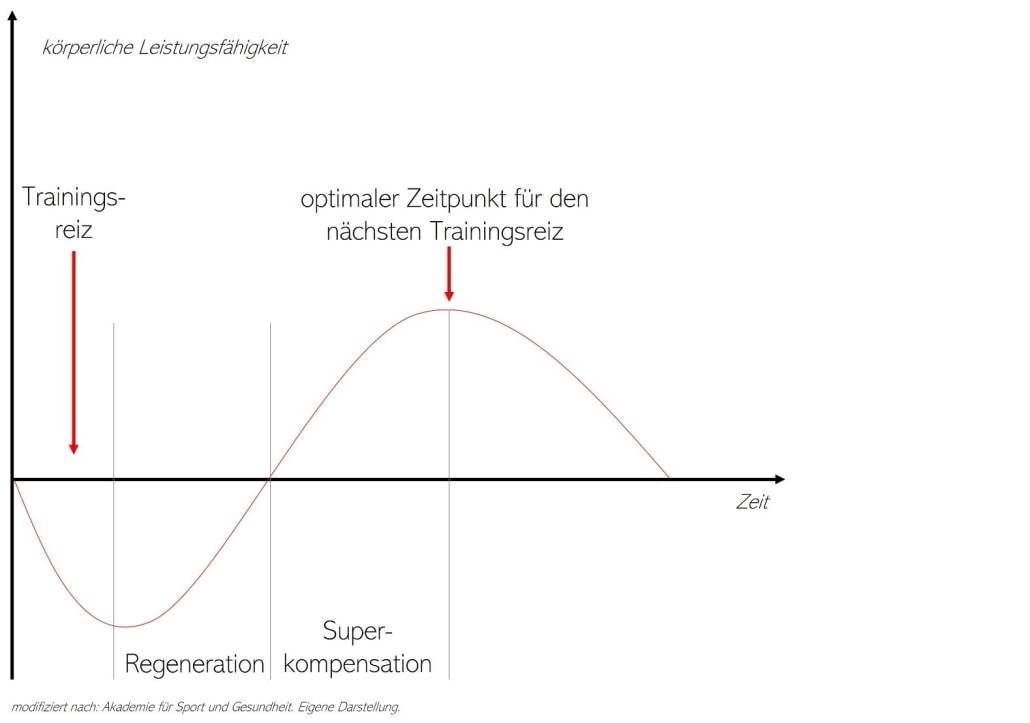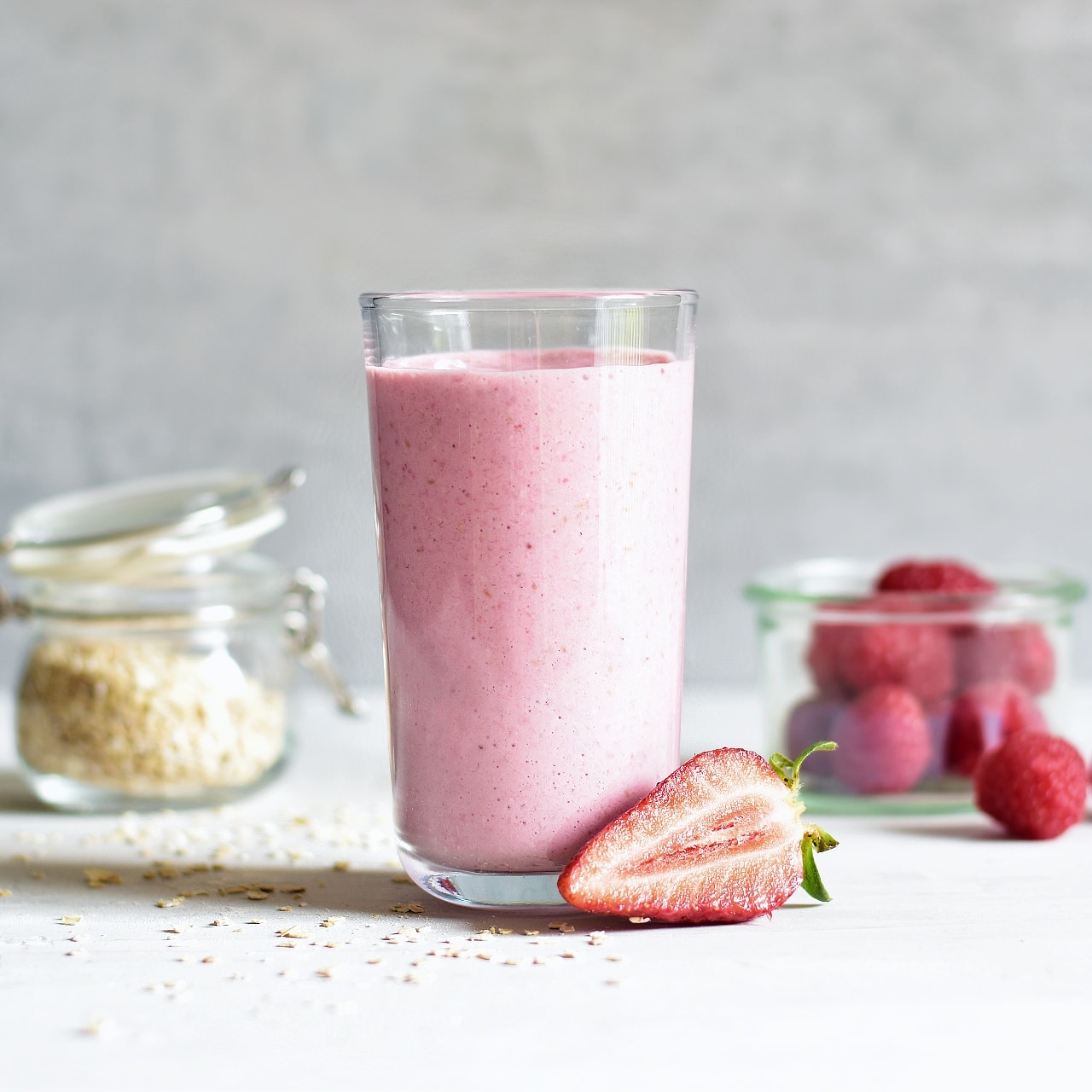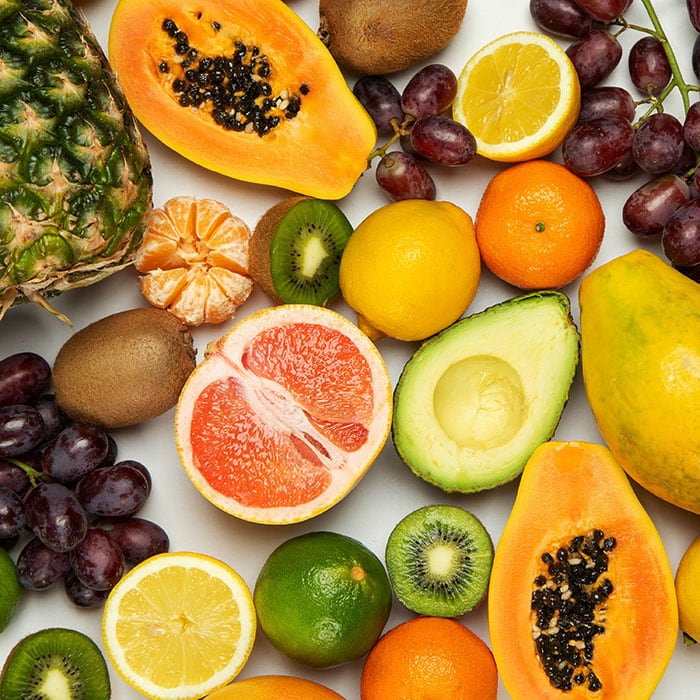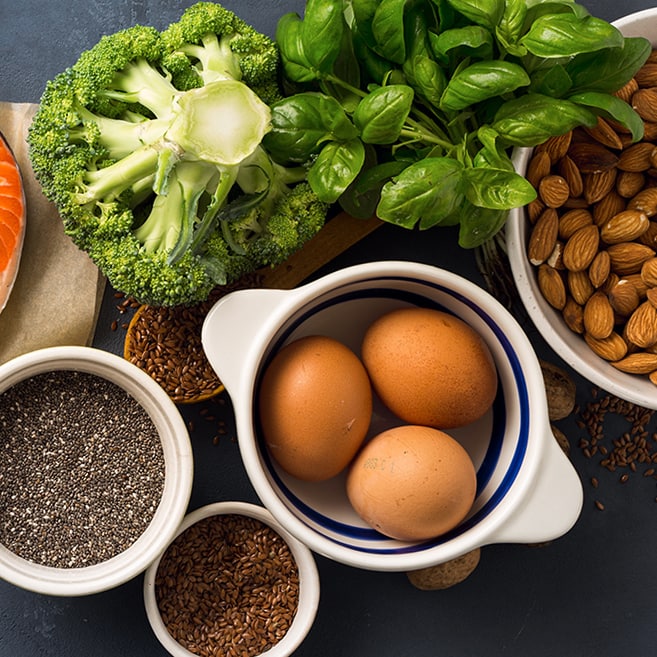An article from Birgit Kogler BSc, dietician:
https://www.ernaehrungsberatung-kogler.at/
Please refuel: how to support your regeneration with a targeted diet
Regeneration is an important part of effective training. This also includes an adapted diet, which can increase the effect of your training: This will make you fitter, enable you to perform better in your next training session and help you build muscle.
Take a break, but do it right.
Good training planning should always include phases of regeneration in order to achieve the desired increase in performance. The body falls into a state of exhaustion, especially after intensive training in which the muscles have been strained beyond their existing performance level. The sporting strain causes tiny tears in the muscle fibers, so-called microtraumas, which – if they are present to a greater extent – result in muscle soreness. If regeneration is neglected and the wrong foods are consumed, this can ruin the training effect and lead to overtraining in the long term. How do you notice this? Tiredness, lower stress tolerance and reduced performance. So remember:
Training + regeneration = increased performance
You should bear the following points in mind:
- Plan training and regeneration together: Plan a regeneration phase after every intensive workout.
- Get enough sleep: 7 to 9 hours of sleep per night is ideal for adults.
- Active and passive recovery: Whether it’s the obligatory cool-down after training, a sauna afterwards, moderate fascia training or a leisurely walk on a non-training day, find out how you can best reduce your stress levels and where you feel the greatest recovery effect.
- Balanced, needs-based nutrition (Strength) food: Optimal nutrition after training.
Needs-based, balanced meal design and planning can promote recovery and thus maximize the training effect. The following three points are important:
Rehydrate: intake of water and electrolytes to compensate for the losses caused by sweating.
Refuel: Supply of carbohydrates to replenish the energy stores in the muscle.
Repair: Supply of high-quality protein to optimally support muscle protein synthesis.
Rehydrate.
To avoid overheating during exercise, the body produces sweat. Sweat production can vary greatly depending on the type of sport, duration, intensity and level of training.Trained people and men tend to sweat more than untrained people or women. General recommendations should therefore be viewed critically. It is best to always pay attention to your feeling of thirst.
If there is no further training in the next 24 hours after exercise, you can get enough fluids and electrolytes by eating normal meals and drinking plenty of water.
Please note, however, that you should start your training session well hydrated. You should drink 5-10 ml of fluid per kg of body weight 2-4 hours beforehand, preferably water.No additional fluid intake is necessary during endurance workouts lasting up to 60 minutes.From 60 minutes, water should be chosen, from 90 minutes a drink with a carbohydrate content (30-60 g/h), for more than 120 minutes and a high sweat rate (>1.2 l/h) additional sodium should be included.The AlpenPower BIO Iso Drink is ideal for this.
This way you know exactly how much you should drink after exercise:
- Weigh yourself before and after training (naked, emptied bladder). The difference shows how much fluid you have lost through sweat.
- The amount of fluid you drank during exercise must be subtracted from your post-workout weight.
- For optimal rehydration, 1.5 liters of fluid per kg of weight loss is ideal.
Refuel.
Carbohydrates are the most important sources of energy during sport and can be metabolized both aerobically and anaerobically into ATP, the smallest unit of energy in our cells.
Up to 500 grams of these are stored in the muscles and liver in the form of glycogen (= approx. 2000 kcal). Anyone who fasts after sport or deliberately abstains from carbohydrates in the hope of doing something good for their figure is not only damaging their muscles, but also their immune system.
Empty glycogen stores cause a kind of stress reaction in the body, which is counterproductive – especially in terms of regeneration.
If the next training session is coming up soon after the end of exercise, carbohydrate intake should be started immediately (1-1.2 g carbohydrates/kg body weight per hour in the first 2-4 hours).Otherwise, it is sufficient to include a carbohydrate component in the next meal after training. Best suited for this are
- (wholemeal) cereal products such as finely ground wholemeal bread, pasta, crackers, oat flakes, wholemeal semolina, millet, rice/spelt waffles, toast, cereal flakes, cornflakes, …
- Potatoes
- Fruit, vegetables
Repair.
Protein is an important building material for our body, which is required for the construction and reconstruction of cells of all kinds.
Protein is particularly important in sports due to its muscle-strengthening and muscle-building effect.An appropriate protein intake can support training success and promote muscle building.
The current recommendation for protein intake in sport is 1.2-2.0 g per kg of body weight. It is particularly important to divide the amount of protein between 3-4 meals:For example, 3 main meals and 1 post-workout meal.
For a long time, it was recommended to immediately consume protein within half an hour after training (the so-called “anabolic window”) in order to support muscle protein synthesis. It is now known that a sufficient protein intake throughout the day is much more important. So you don’t have to stress yourself out after training if you don’t have a protein-rich meal on the table straight away. However, plan a balanced meal in the 3-4 hours afterwards, which should contain between 20 and 40 g of high-quality protein, depending on your total protein requirements:
- Lean dairy products such as skyr, curd cheese, Greek yogurt 0-2% fat, cottage cheese, low-fat cream cheese
- Lean meat, fish
- Eggs
- Legumes
- High-quality protein powder without chemical flavors, sweeteners or sugar
The perfect post-workout meal.
The meal after your workout should provide you with fluids, carbohydrates and protein.Don’t forget vitamins, minerals and phytochemicals from fruit and vegetables.These vital substances are needed as enzymes in the energy and protein metabolism, but also as protective substances for the immune system.
So plan a wholesome, balanced meal after your workout: a salad with mozzarella and toasted wholemeal bread, skyr with berries and oat flakes or egg muffins with vegetables.
If there is no time for a full meal after training or if you need something quick, many people turn to a protein shake. But these are often pumped full of artificial flavors and chemical sweeteners. And don’t forget: a carbohydrate component is essential for quick recovery after intensive exercise, especially when the next training session is already knocking on the door. The BIO Weight Gainer from AlpenPower combines carbohydrates with protein for optimum recovery, without any sweeteners.
Here is a recipe for you on how to prepare a delicious recovery shake that optimally supports your regeneration:
Recipe: Recovery shake
100 g skyr
150 g berries (e.g. raspberries)
30 g AlpenPower BIO oat powder
30 g AlpenPower BIO Whey Protein Neutral
100-150 ml water
Put all the ingredients in a smoothie maker and blend.
If you like, you can add 10 g of sweetener (e.g. sugar, honey, birch sugar).
____________________________________________________________________________________________
Nutritional values per portion (without sweetener):
360 kcal / 1514 kJ, 4.4 g fat, 29.6 g carbohydrates, 41.4 g protein
____________________________________________________________________________________________
Nutritional values per portion (with 10 g sugar):
400 kcal / 1684 kJ, 4.4 g fat, 39.6 g carbohydrates, 41.4 g protein
____________________________________________________________________________________________
Info: If the total protein requirement is less than 100 g per day, half a portion of the shake is sufficient as a post-workout meal.
An article from Birgit Kogler BSc, dietician:
https://www.ernaehrungsberatung-kogler.at/
Sources:
Akademie für Sport und Gesundheit (2022) Superkompensation. Online im WWW unter: https://www.akademie-sport-gesundheit.de/lexikon/superkompensation.html#:~:text=Die%20Superkompensation%20ist%20eine%20%C3%BCberschie
%C3%9Fende,Leistungsf%C3%A4higkeit%20%C3%BCber%20das%20Ausgangsniveau%20hinaus. Letzter Zugriff am: 8.5.2022
Graumann L, Walter UN, Krapf F (2019) Regeneration. Jeden Tag erholt, ausgeschlafen und erfolgreich. Riva Verlag, ein Imprint der Münchner Verlagsgruppe GmbH, München.
König D, Braun H, Carlsohn A et al (2019) Carbohydrates in sports nutrition. Position of the working group sports nutrition of the German Nutrition Society (DGE). Ernahrungs Umschau 66(11): 228–235
König D, Carlsohn A, Braun H et al. Proteins in sports nutrition. Position of the working group sports nutrition of the German Nutrition Society (DGE). Ernaehrungs Umschau 2020; 67(7): 132–9.
Mosler S, Braun H, Carlsohn A et al (2019) Fluid replacement in sports. Position of the working group sports nutrition of the German Nutrition Society (DGE). Ernahrungs Umschau 66(3): 52–59
Österreichische Gesellschaft für Sporternährung (ÖGSE) (Hrsg.) (2017) Lehrbuch der Sporternährung: Das wissenschaftlich fundierte Kompedium zur Ernährung im Sport. 1. Ausgabe. CLAX Fachverlag GmbH.
Raschka C, Ruf S (2018) Sport und Ernährung: Wissenschaftlich basierte Empfehlungen, Tipps und Ernährungspläne für die Praxis. Thieme, 4. Auflage.
Schek A, Braun H, Carlsohn A et al (2019) Fats in sports nutrition. Position of the working group sports nutrition of the German Nutrition Society (DGE). Ernahrungs Umschau 66(9): 181–188



